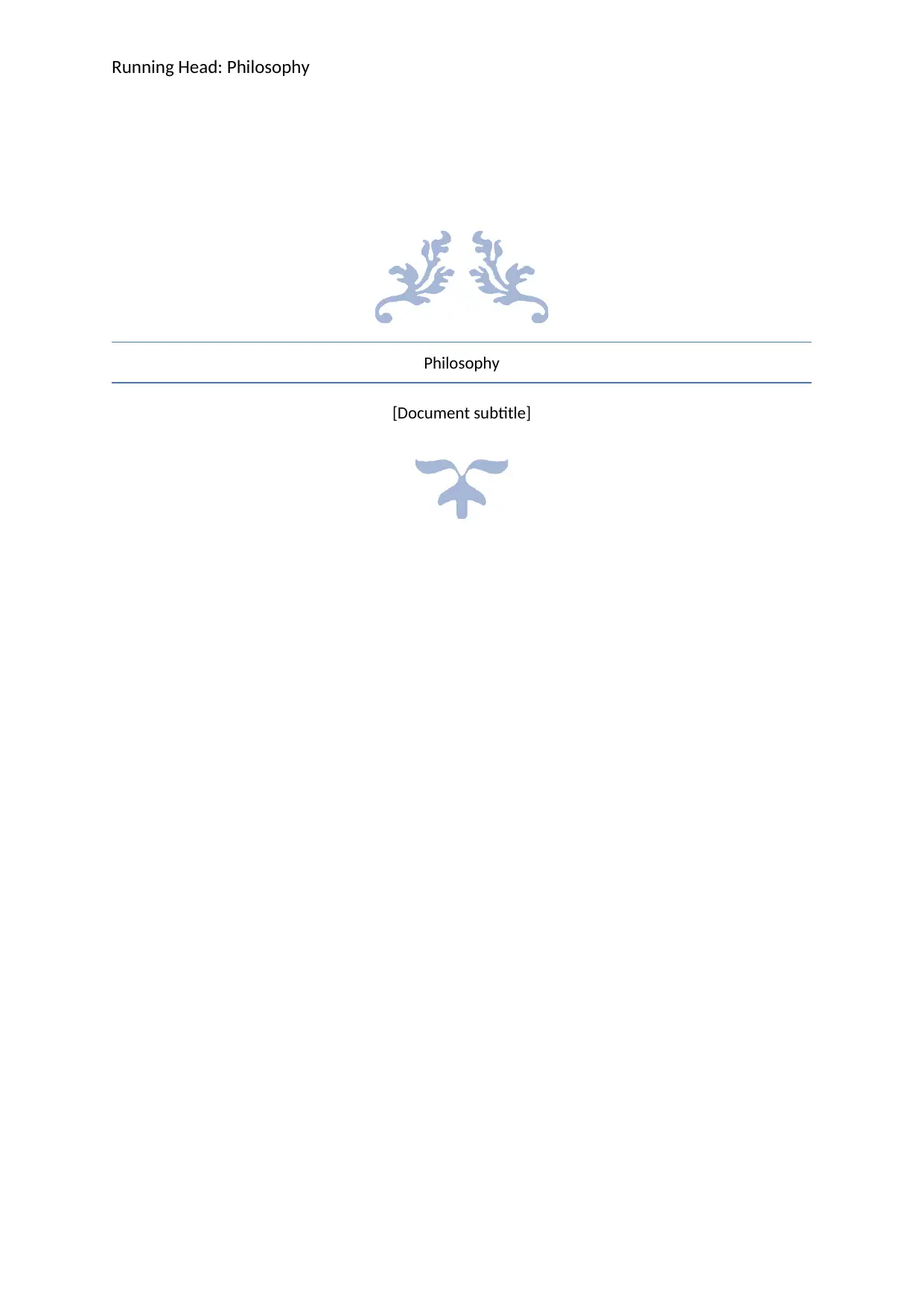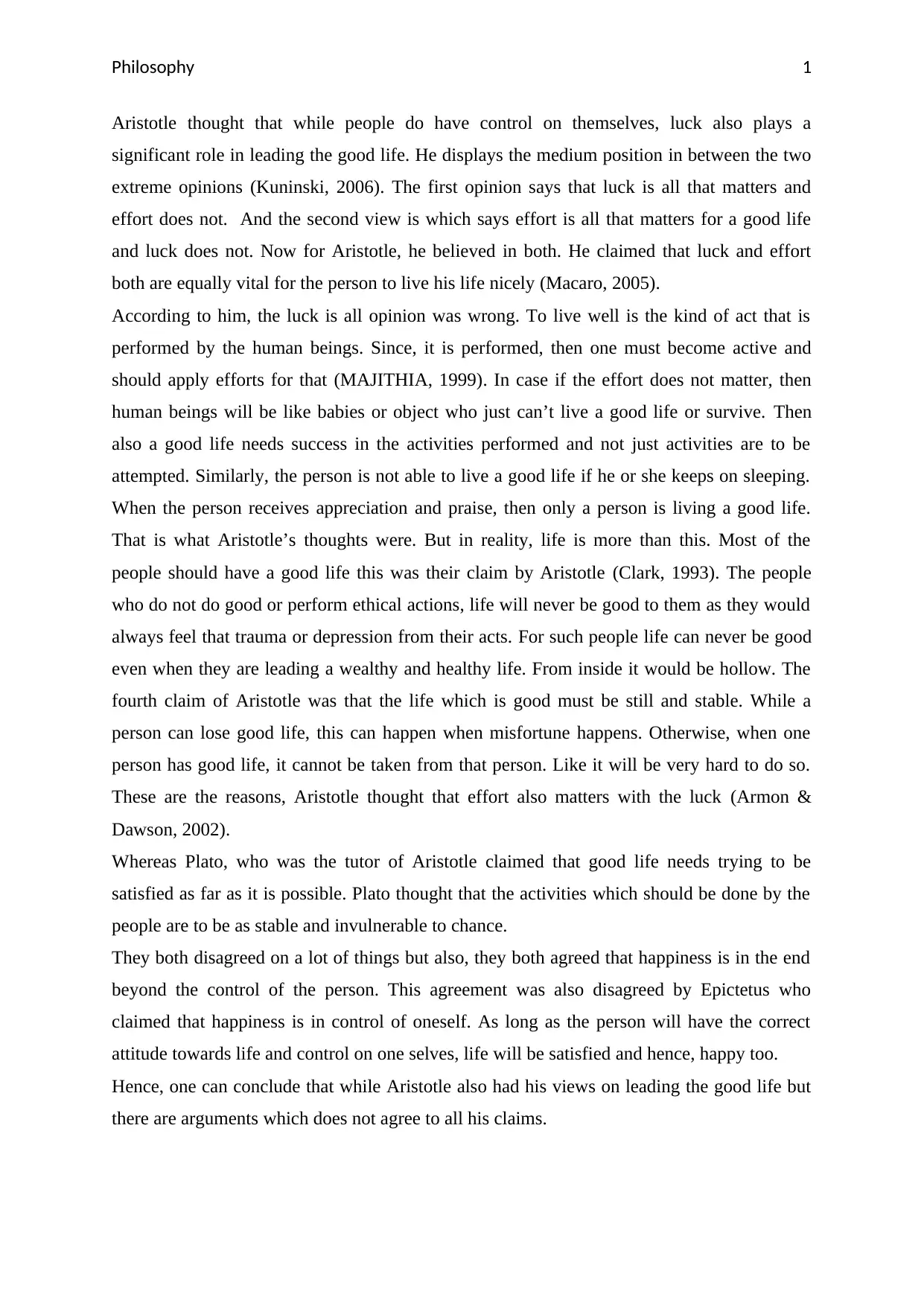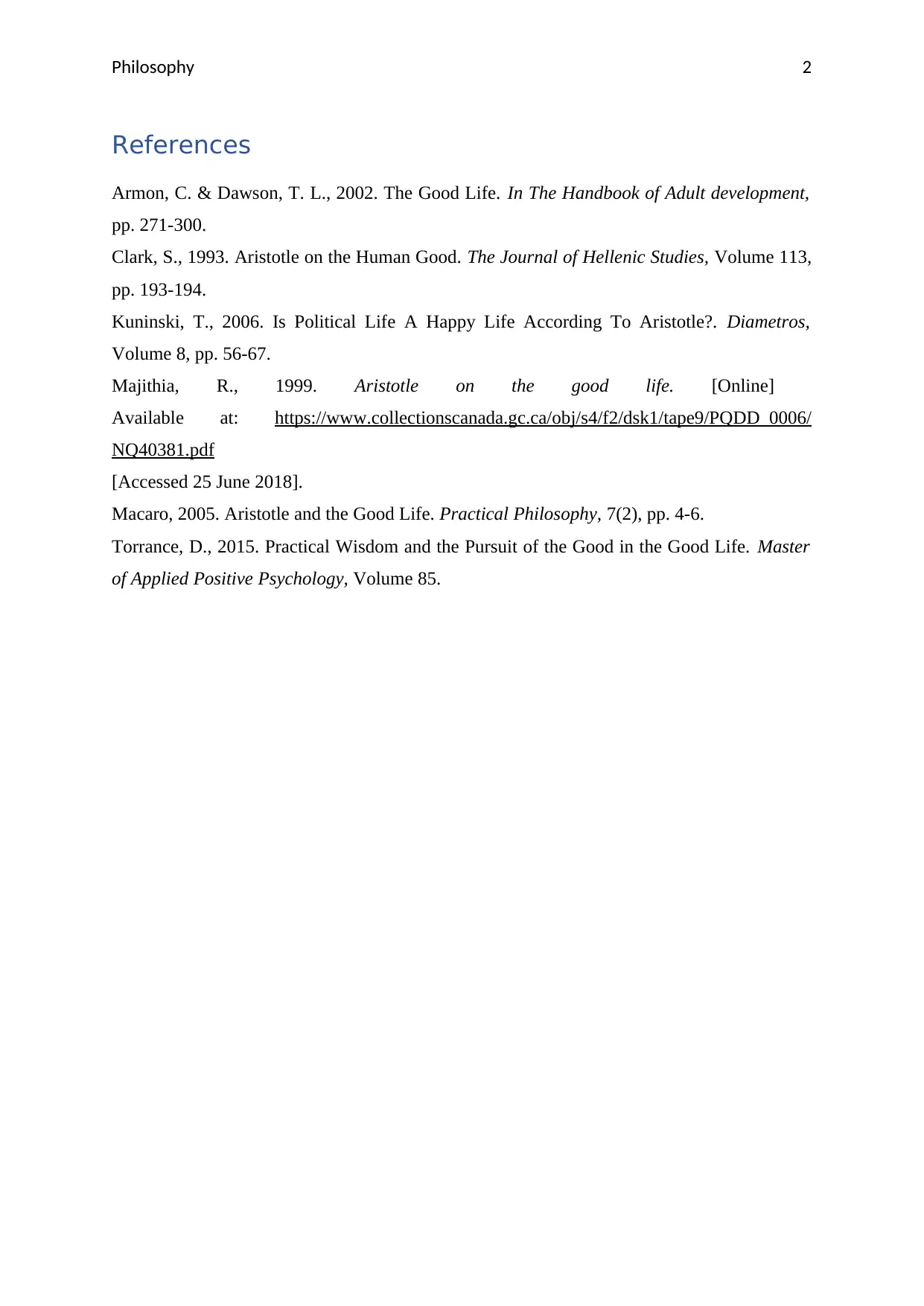Aristotle and Plato's Views on the Good Life
VerifiedAdded on 2023/06/11
|3
|748
|344
AI Summary
This article explores the differing views of Aristotle and Plato on the good life, with a focus on the role of luck and effort, stability, and happiness. While Aristotle believed that both luck and effort were necessary for a good life, Plato emphasized the importance of stability and invulnerability to chance. Both philosophers agreed that happiness was ultimately beyond the control of the individual, but this view was challenged by Epictetus. The article draws on a range of sources to provide a comprehensive overview of these complex philosophical ideas.
Contribute Materials
Your contribution can guide someone’s learning journey. Share your
documents today.
1 out of 3
![[object Object]](/_next/static/media/star-bottom.7253800d.svg)








